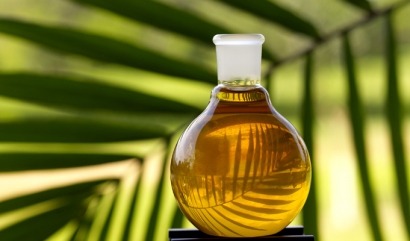
Malaysia is the second largest crude palm oil producer in the world with 17.5 million tonnes in 2010, which is expected to rise to 21.5 million tonnes. As of 2009, Malaysia had 4.7 million hectares of oil palm plantations, 416 mills, 43 crushers, 51 refineries, 18 oleochemical plants and 25 biodiesel plants.
Waste from palm oil plantations is known to be a major contributor to biomass in the country, which is being converted into low-value wood products, fertilizers, aggregates, and fuel pellets/briquettes. Some is also burned at the palm oil mills to produce in-house energy, while a considerable amount is being exported out to other countries (such as Japan & EU).
Nevertheless, Malaysia has so far failed to properly exploit this resource for generating energy, especially as palm oil waste can be readily converted into biofuel and biogas. However, the Malaysian government has realised this potential and is working to better position the country strategically in order to exploit this leading position.
Recently for example, the Global Science and Innovation Advisory Council (GSIAC), chaired by theMalaysian Prime Minister, with the support of the Malaysia Industry-Government Group for High Technology (MIGHT) and the New York Academy of Sciences (NYAS) established the Malaysian Biomass Initiative (MBI).
The MBI is based on a public-private partnership model and operated by an entity where sub-entities of the MBI (such as a Special Purpose Vehicle for Aggregation, Consortia, etc.) will play the crucial role of long-term sole purchaser and supplier of palm waste biomass.
Other responsibilities of the MBI and its sub-entities include ensuring the reliable and sustainable supply of biomass (from feedstock to off-takers), coordinating optimisation for quality and cost efficient processes, and integrating global technologies to provide fractionated biomass components.
The MBI also has capacity-building elements whereby the GSIAC platform may serve to provide input to the related Centres of Excellence in Malaysia, especially where relevant technologies in the MBI are concerned.
An untapped reservoir
“The MBI aims to be a clear, concerted and well-structured intervention solution for a sustainable and manageable initiative in catalysing and optimizing Malaysia’s ready supply of biomass towards realizing downstream economic opportunities in the oil-palm industry;” says the Initiative. “Malaysia’s oil-palm biomass is truly an untapped reservoir. Utilization of biomass can be both green and wealth-creating.”
The MBI is projected to generate an additional income of RM 100 billion or more to the Malaysian economy with the addition of creating highly skilled and semi-skilled jobs.
MyBiomass is the special purpose vehicle established by the MBI to act as a focal point for the supply of biomass and intermediate opportunities between suppliers, technology providers and downstream users. Its Managing Director, Puvaneswari Ramasamy, recently told local news provider, Bernama, that much needed to be done to tap the potential of palm oil biomass, especially by the local plantation companies that are currently focusing on upstream activities.
"It is estimated that Malaysia generates up to 80 million tonnes of residue or waste annually from palm plantation, largely consisting of empty fruit bunches (EFBs), trunks, fronds, shells and palm kernel cakes. However, the residue's potential has ne been tapped yet," she said, adding that local plantation companies were gradually realising the potential of these downstream activities that involved biomass as a feedstock.
In addition, palm oil mill owners are beginning to see the benefit of producing biogas using mill effluents which can then be used to generate electricity. With the recent introduction of a feed-in-tariff mechanism, the effort to generate electricity from biomass is also expected to gain momentum in the future.
The government hopes that the Malaysian Biomass Initiative, along with other projects such as the Smart City-Smart Village project, will jump-start a vibrant green technology in Malaysia.
For additional information:

